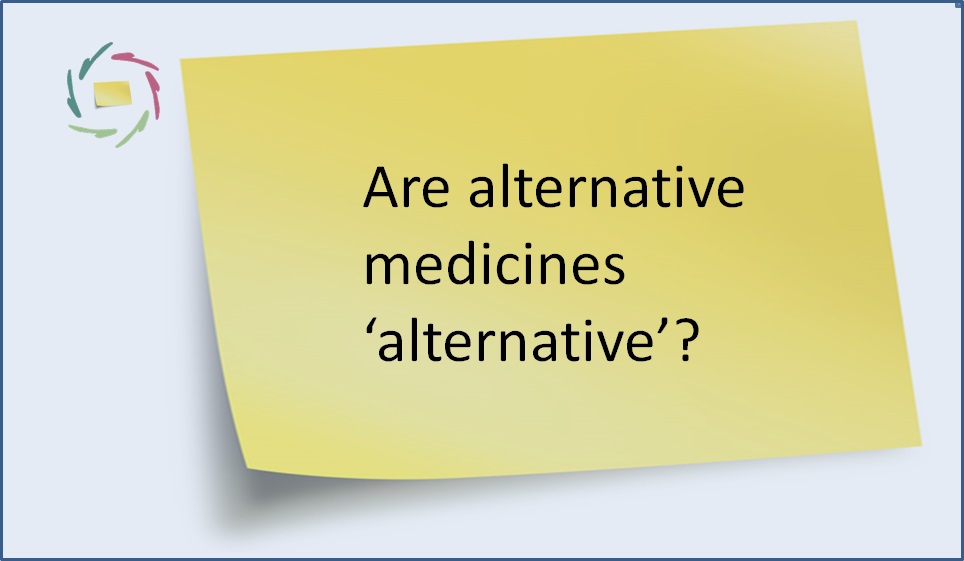(Re)appraisals on Health

Health-related expectations can profoundly affect one’s health in the short and long term. Therefore, (re)appraisals can have profound effects on health or disease ― or not?
Two kinds of belief + a continuum
Two kinds, and how to change them:
- For a surface-level belief, one can look for conceptually valid arguments ― for example, a scientific hypothesis.
- For a deep-level belief, one needs to change rather as a person ― for example, a religious belief.
For an in-between-level belief, a belief system (a conglomerate of separate but overlapping beliefs) needs to be changed. Most daily beliefs are of this kind, with more or less depth involved. In this continuum, the more depth, the more difficult it is to consciously change a specific belief without changing the belief system in which it is embedded.
This text is furthermore about ‘belief’ as the daily kind.
Beliefs are bound with self-fulfilling expectations. This mechanism is related to how the brain generally works: largely as a predictive device. Reappraisals may shift expectations, thereby becoming self-fulfilling actions.
For instance, research continues to show that the belief that one hasn’t slept much can bring the self-fulfilling expectation that one will be tired the next day ― also irrespective of the actual number of hours slept. Complaining good sleepers fare worse than non-complaining bad sleepers, including in their raise of blood pressure.
Other examples
The belief that one has ingested few calories brings the self-fulfilling expectation that one will become hungry again soon ― also changing the insulin response and other physiological parameters of digestion and metabolism. The belief that hunger equals feeling bad brings the self-fulfilling expectation of hunger as a bad feeling.
The belief that one gets tired from mentally demanding work (limited view of the mind) brings the self-fulfilling expectation of diminished productivity after hours of focused brain activity, such as during the period of run-up to exams.
The belief that boys are better in math or physics brings the self-fulfilling expectation of better exam results. The same principle is valid where the girls score better.
The belief that old age necessarily goes with frailty, chronic inflammation, illness, hypertension, telomere shortening (indicator of ageing and longevity), shrinking attention span, and memory decline brings the self-fulfilling expectation that one, in old age, has a high chance of suffering from these ― in some genetic groups doubling the risk of developing demntia.
The belief that one suffers from motion sickness enhances the self-fulfilling expectation of related symptoms. The same applies to premenstrual syndrome, whiplash, mild concussion, gluten intolerance, vaccination side effects, allergies, irritable bowel syndrome, wind turbine syndrome, sick building syndrome, migraines, negative stress results, burnout, and many other health issues, as proven through much scientific research. Even a substantial expectation-induced increase in mortality has been proven in several domains ― not only in ‘primitive’ cultures but even more so in technologically advanced ones.
The placebo effect
This is, within the domain of health, a self-fulfilling expectation effect engendered by the belief that one has done something with a positive influence.
The placebo effect is robustly investigated. Frequently, the effect is surprisingly large. This can make one sensitive to appreciating similar effects in other domains, such as the above. What at first sight might seem weird may become more acceptable.
Reappraising from depth
See also the change from negative to positive mindset. Note here the difference between a horizontal and vertical movement.
Reappraisal has been getting an increasing amount of attention in recent years. However, a simple reappraisal (or taking a placebo) doesn’t lead to a profoundly meaningful change at the energetic (deep) level. Any change in this vein is rather mechanical and can be ‘hurtful to the soul.’
That is pretty serious!
Additionally, people may try to reappraise without success for the same reason as why they made the initial unhelpful appraisal. Coercing them to reappraise may damage them further, while in research, the effect of reappraisal still comes out positive ― apparent causation but underlying different causation.
Also, some people may make the vertical move automatically. This way, it may seem that the top right is the culprit for many negative health issues: (chronic) anger, stress, anxiety, depressive feelings… Meanwhile, the same issues – if looked upon horizontally – may be significantly less influential than in case the vertical is taken into account. Thus, when others try to reproduce the result, this turns out to be less obvious. Something is missing. This missing link is the deeper level, the one of ‘deep motivation.’
This leads to misattributions in medical and social science.
The placebo effect is a notorious example ― rampant before the era of double-blind studies some 50 years ago. But even now, much of the pre-double-blind era remains. Many are not truly double-blind, with only 5% of them being tested. Also, double-blind is hardly done in surgery – for obvious reasons – with sometimes astounding effects, for instance, in orthopedics and cardiology.
To the degree that a horizontal move of (re)appraisal goes somewhat deeper, ‘it’ can be effective. In such cases, however, ‘it’ is vertical contamination. In scientific research, this noise leads to inconsistent results. The positive effect doesn’t depend on the pure (re)appraisal but on how it is done. This way, positive thinking (or any other ‘it’) may seem overly effective through misattribution.
The same misattribution leads to disdaining or negating anything that happens more vertically.
Science!
We need more science that fully considers human depth, especially in the long term and in the real world. It may help many in going from a negative to a positive mindset.
All people in the real world deserve this.


